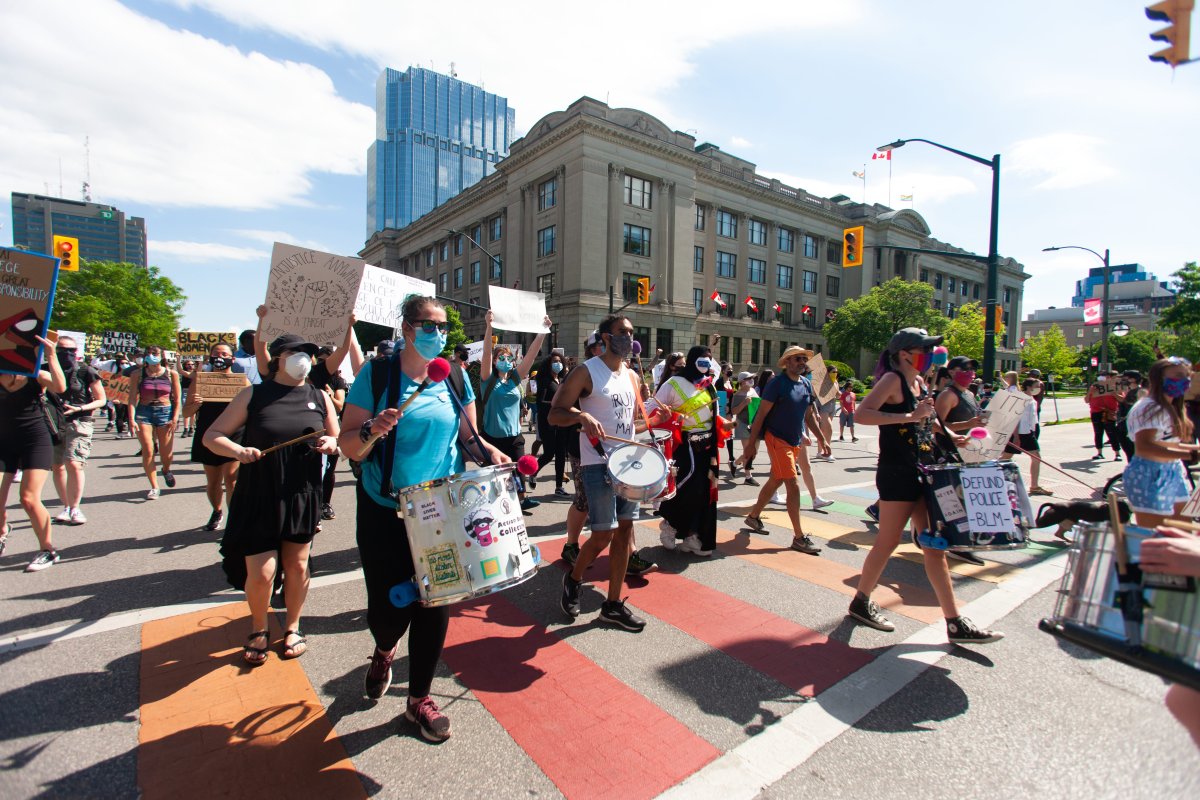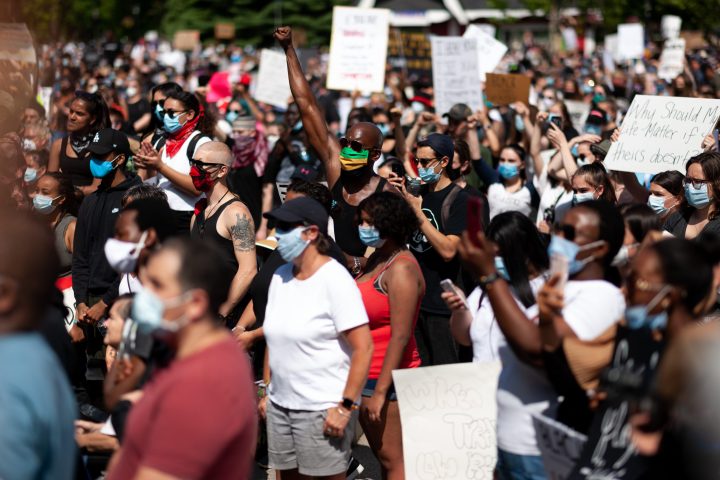The medical officer of health for London and Middlesex says he doesn’t expect there to be a spike in novel coronavirus cases as a result of the mass turnout over the weekend at a large anti-racism rally in the downtown core.

An estimated 10,000 people attended and marched in the Black Lives Matter rally in Victoria Park on Saturday to denounce racism, systemic discrimination and police brutality.
The rally came in the wake of the police killing of George Floyd in Minneapolis, as well as the deaths in London and Toronto of Caleb Tubila Njoko, 27, and Regis Korchinski-Paquet, 29, respectively.
Both fell from balconies during police encounters that are being investigated by the province’s police watchdog.
Similar rallies were also held across the country in Toronto, Montreal, St. John’s, and Calgary.
Speaking to reporters on Monday, Dr. Chris Mackie said despite the large local crowd, he didn’t see the rally being a major contributor to the region’s coronavirus case count.
“When we look at all of the openings and increased contact across our whole society right now, I actually think that the protests on Saturday is a relatively small contributor,” said Dr. Mackie, who is also CEO of the Middlesex-London Health Unit (MLHU).

Get weekly health news
In the lead-up to the rally, local Black Lives Matter organizers asked that demonstrators wear masks, social distance if possible, and refrain from attending if sick.
Mackie said the protests may bring about “a bump” in cases — cases that will likely be reflected in the regional tally in seven to 10 days — but stressed that the vast majority of demonstrators he saw followed the advice and wore masks.
Mackie said he attended the rally and observed it from his vehicle.
In any case, the health unit is advising those who attended the rally to self-monitor over the next 14 days and get tested at an assessment centre if symptoms develop.
“We do try to trace all of the cases that we diagnose in the region to see if there is a specific exposure or cause, and we would look into each of the cases that come up in the next couple of weeks to see if there is a link back to this protest,” Mackie said.
“At this point, I’m not anticipating much, but we’ll see.”
- B.C. teen in critical condition in hospital with 1st presumptive human case of bird flu
- With B.C. teen sick in hospital with suspected bird flu, what should parents know?
- Bird flu: What we know about Canada’s 1st human case detected in B.C.
- Veteran mental health highlighted on Remembrance Day: ‘It’s hard to say I’m not OK’
Mackie’s comments came less than an hour after the province unveiled stage two of its reopening plans, which will see most regions outside of Toronto allowed to open more businesses and activities this week.
London-Middlesex is among the regions being allowed to move into stage two on Friday, along with Elgin, Huron, Oxford, and Perth counties.
Province-wide, social gatherings are also increasing from five to 10 people. The government says people must still stay two metres away from anyone outside of their own household.
On Monday, MLHU reported three net new cases, all community-sourced.
London and Middlesex has seen 57 new cases over the last two weeks, averaging out to about four a day. In comparison, the region saw 190 cases reported between April 1 and 15.
Provincially, Ontario reported the lowest growth rate in COVID-19 cases since early March on Monday.
Health officials said there had been 243 new cases for a total of 30,860 — an increase of 0.8 per cent over the previous day.














Comments